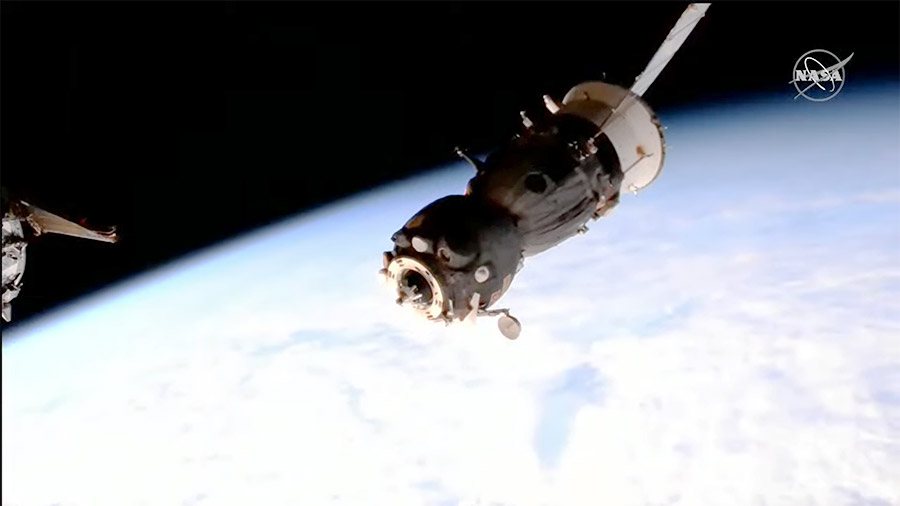Roscosmos has had quite the run of bad luck lately. In addition to sanctions putting pressure on their space program and the cancellation of agreements (all due to the war in Ukraine), the Russian space agency has experienced several problems in space. On December 14th, 2022, and February 11th, 2023, two space capsules reportedly suffered radiator coolant leaks (Soyuz MS-22 and Progress 82). In addition to delivering fresh supplies to the International Space Station (ISS), one of the spacecraft (M-22) was slated to bring three members of Expedition 68 back to Earth.
Luckily, on February 25th, Russia announced it was sending another Soyuz capsule to replace the M-22 (Soyuz M-23) and retrieve the three crew members, cosmonauts Sergey Prokopyev and Dmitri Petelin, and astronaut Frank Rubio (who will return to Earth now on September 27th). In addition, Tuesday, March 28th, Russia undocked the M-22 from the ISS and successfully brought it home without crew. NASA provided live coverage of the undocking and departure of the uncrewed spacecraft via NASA TV, the agency website, and the NASA app.
After undocking with the ISS at 5:57 AM EDT (2:57 AM PDT), the spacecraft made an automated, parachute-assisted landing in Kazakhstan less than two hours later at 5:46 PM Kazakhstan time (7:46 AM EDT; 4:46 AM PDT). This successful retrieval of this spacecraft and the safe return of the three Expedition 68 crewmembers will put this incident and the delays it imposed to rest. However, the incident raises questions about the state of Roscosmos, given that this is the latest in a recent string of technical failures and malfunctions.
Due to the rescheduled departure date, astronaut Frank Rubio is destined to set a new record for the longest time a U.S. astronaut spent in space. Whereas the record for longest stay goes to the late Russian cosmonaut Valeri Polyakov, who spent 437 continuous days in space aboard the Mir Space Station, Rubio's 371-day stay will be edging out Scott Kelly and Christina Koch, who spent a total of 340 (March 2015 to March 2016) and 328 days (February to December 2019) aboard the ISS (respectively).
Meanwhile, Expedition 69 has started aboard the ISS, with cosmonaut Sergey Prokopyev acting as Station Commander. Other crewmembers include NASA astronauts Stephen Bowen, Woody Hoburg, and Frank Rubio, United Arab Emirates (UAE) astronaut Sultan Alneyadi, and Roscosmos cosmonauts Andrey Fedyaev and Dmitri Petelin. This Expedition will feature research into how cardiac cells behave in microgravity, pharmaceuticals that may protect astronaut health, tests involving the European Robotic Arm, and the Foam and Emulsions physics study.
*Further Reading: NASA Blo*
 Universe Today
Universe Today

